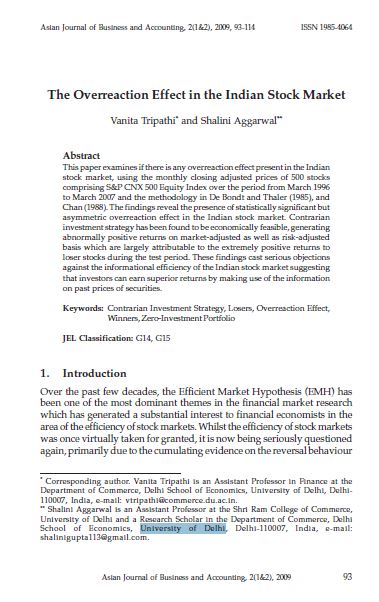The Overreaction Effect in the Indian Stock Market
Abstract
This paper examines if there is any overreaction effect present in the Indian
stock market, using the monthly closing adjusted prices of 500 stocks
comprising S&P CNX 500 Equity Index over the period from March 1996
to March 2007 and the methodology in De Bondt and Thaler (1985), and
Chan (1988). The findings reveal the presence of statistically significant but
asymmetric overreaction effect in the Indian stock market. Contrarian
investment strategy has been found to be economically feasible, generating
abnormally positive returns on market-adjusted as well as risk-adjusted
basis which are largely attributable to the extremely positive returns to
loser stocks during the test period. These findings cast serious objections
against the informational efficiency of the Indian stock market suggesting
that investors can earn superior returns by making use of the information
on past prices of securities.
Downloads








